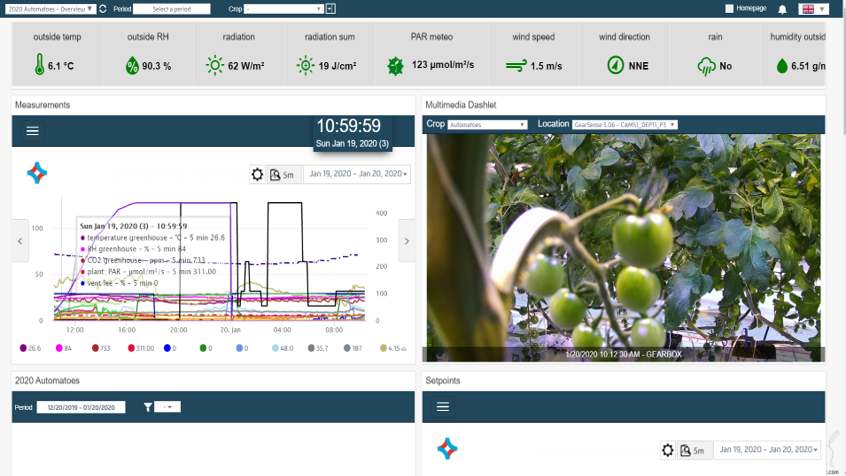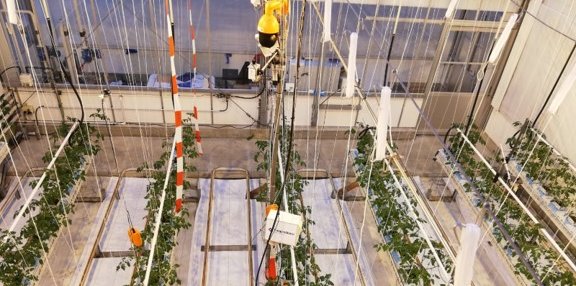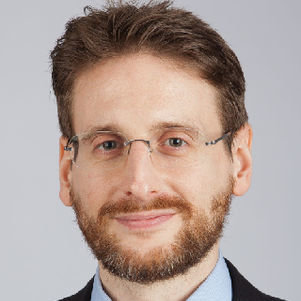“This partnership builds knowledge at the interface of biology, technology and society to develop new sustainable strategies for the agriculture sector, such as systems for intelligent decision making in greenhouses”
Although it only has a tiny land area, the Netherlands is a world leader in agricultural technology and the second largest exporter of food worldwide. This is good for the Dutch economy, but in addition to its economic success, the Netherlands also faces major challenges in the field of sustainability. The current farming techniques lead to environmental pollution, resource depletion, loss of biodiversity and deterioration of soil quality. Moreover, there are less and less skilled workers available. Today, more and more innovative solutions are being developed to make agricultural processes more environmentally friendly. But how do you decide what the best solution is for the planet and the climate? How can you continue to feed the world without harming the environment?
“In greenhouse horticulture, we want to know more about the plants that we grow so that we can develop more efficient and reliable control systems for the greenhouse,” explains Tamás Keviczky, Associate Professor at the Delft Center for Systems and Control (Faculty of ME). “In dairy farming, we focus on the cow, and in particular its diet and the management of the manure and the greenhouse gas methane it produces. In arable farming, we conduct research into mixed cropping to improve biodiversity and soil quality.”
Strategies for sustainable agriculture
Keviczky represents TU Delft in Synergia, SYstem change for New Ecology-based and Resource efficient Growth with high tech In Agriculture’. This is a partnership between the four Dutch technical universities and Radboud University Nijmegen. The aim of this partnership is to build knowledge at the interface of biology, technology and society in order to develop new sustainable strategies for the agriculture sector. In December 2019, NWO awarded the Synergia programme a grant of €7 million. The kick-off of the programme is set to take place in early summer.
Five lines of research
The programme comprises five lines of research: understanding biological aspects, smart crop and animal sensing, intelligent control and decision making, robotic handling and societal aspects and transition. In addition, the programme is working on three case studies focusing on greenhouse horticulture, dairy farming and arable farming.
Live measurements from the greenhouse

Intriguing system
Keviczky is working on the development of systems for intelligent decision making in greenhouses. “A greenhouse is an intriguing system,” he says. “Plants in a greenhouse do not function as a regular mechanical system that you can control. With plants, any input you make cannot be undone. If the plant is not managed properly, it will die, so you need to identify specific safe zones where the plant can survive. The challenge is to find a balance between quality, quantity and costs.”
The researcher is developing predictive models that are based on various parameters. “In a greenhouse, a huge number of factors can be controlled or measured, such as light incidence, ventilation, air flows and the quantity of water. Besides these, there are influences from outside, including radiation from the sun and the temperature.” This creates a complexity that cannot be precisely modelled. “There are often many unknown factors of which you must predict the effects.”
Artificial intelligence
Artificial intelligence can play a role here. The focus in a greenhouse is to optimise all processes during the entire growing season of the plant. This requires a particular strategy based on data and models. “It is quite a challenge to identify and quantify the factors you need to measure, and there are often many unknowns.”
One such unknown is ventilation. “We are developing a system that can link the data and so facilitate decision making. We then investigate whether this solution can also be used for other applications with similar characteristics.”
- Keviczky is also participating in the Autonomous Greenhouse Challenge. You can read more about this challenge here -
From mono-cropping to pixel-farming
Mono-cropping, whereby only a single crop is grown on a large area, is often practiced in arable farming. The crop is easy to manage and profitable, but it has an enormous impact on soil erosion and the biodiversity on the farm.
Researchers are now looking at how they can increase biodiversity and enrich the soil by using so-called inter-cropping strategies. In this process, different crops are grown in alternating rows and according to a specific cropping plan. The ultimate goal is to develop a pixel-farming system, with fields with a mix of various crops that grow and interact much like a natural system.
“TU Delft is studying the feasibility of a system that provides information on how different types of plants and insects influence each other,” says Keviczky. This is quite difficult to model, because there are many uncertainties concerning the parameters and interactions. “So the research focuses on the development of ecological models that describe the behaviour of the system.”

Valuable cooperation
In the programme, experienced professors cooperate with younger researchers (27 PhDs, PdEngs and Postdocs) from the five universities in the fields of life sciences, technology, computerisation and social sciences. There also various agricultural partners and about thirty technology companies involved. This cooperation ensures that the programme can focus on the specific needs of the agriculture sector.
“I expect this programme to bring about closer cooperation between researchers from all the universities,” Keviczky says. “Wageningen has produced excellent results in the past and is the world leader in this field. They are well positioned to bridge the gap between academia, applied research and industry.”
Fundamental research
Keviczky expects that the cooperation will generate more knowledge about biological processes, which is important “to understand the impact of our research on society”. In addition, it is important to carry out fundamental research. “This ensures the development of state-of-the-art technologies, which is a focus of our work at TU Delft. In this programme, this development is mainly in the field of artificial intelligence, control engineering, optimisation and algorithms.”
World leader
Innovation in the field of sustainability is not only good for the environment. “By making sustainability a priority, we can help the Netherlands to maintain its position as a world leader in the agricultural sector.”

